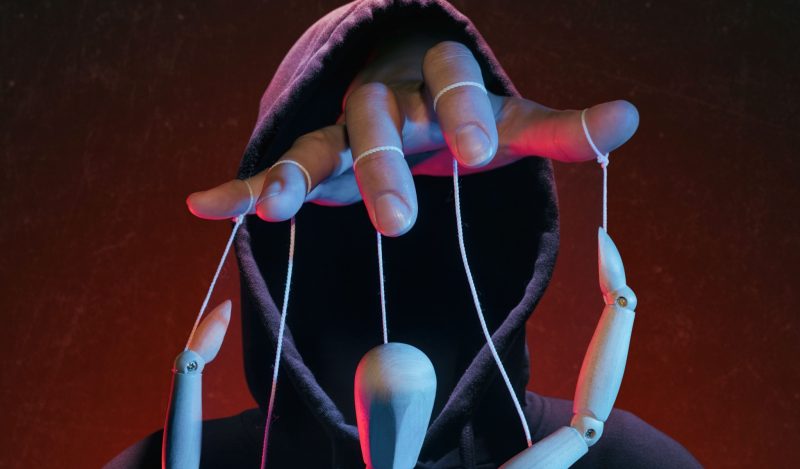A new poll publicized on Fox News reports that “Most Americans back Russian oil sanctions, even with soaring gas prices.” The incredible number is 77 percent. It means of course that many people are actually making some connection between the sanctions and the price of gas, forgetting that gas prices rose 50% before the sanctions. These timelines, for whatever reason, tend to elude people. Also, inflation is affecting every area of life, not just gasoline.
It’s politically helpful to have a scapegoat. It also appears that the Russia/Ukraine war is helping Biden, who had faced an epic decline in job approval. The White House surely welcomes this too.
The headline and trend here reminds me of many headlines from the spring of 2020 when lockdowns began. They were all promoted by Big Media. The polls showed a clear willingness of people to comply with even the most egregious lockdowns – stay-at-home orders – if health officials declared that they were essential. The percentage was 67. This declined only to 50 percent by November 2020. This illustrates just how incredibly slowly public opinion adapted to reality.
The cynical among us – and these days that includes just about every thinking person – would observe that the virus strategy for creating political upheaval and acquiescence to authority worked like a charm. Tell people that there’s an invisible enemy out there that can and will likely slay any person who contracts it, and the only way to avoid it is to stop living life freely, and any state can, under the right conditions, create mayhem and elicit tremendous public compliance.
Today, however, matters are very different. After two years, public opinion has dramatically reversed. Keep in mind that as recently as the last week of February 2022, data indicated that deaths attributed to Covid (if these are and ever were credible numbers) nationwide are roughly the same as they were during the most intense lockdowns of late March 2020. And actually, cases and deaths are higher than they were in the summer of 2020 when public opinion showed mass support for lockdowns.
Based on the data, then, there is no reason for this dramatic shift. There will be years of study and research to do but it appears that no amount of political intervention changed much or anything about the trajectory either way, despite every promise. The public panic achieved nothing except to acculturate people to political control.
And yet, the fear that was never justified seems to be largely gone.
To be sure, there is a reason to be suspicious of these polls. They are all biased by people’s willingness to say what they think they are supposed to say. That in turn is very much influenced by media pressure, which feeds into peer pressure, and finally what people are willing to tell pollsters on the phone. The polled are not always defiant people who are willing to buck conventional wisdom. And for this reason, polls often reflect what people think they are supposed to believe rather than what people actually believe.
But the relationship here is also complex. If public opinion turns dramatically against a certain policy action, the politicians start to become nervous. Not even deep-state ambitions to create a permanent state of emergency can stand up to it. That appears to be what happened, and quite suddenly, with Covid rules and vaccine mandates, both of which unraveled quickly and in ways that some elite interests clearly opposed.
When Mayor Bill de Blasio of New York City mandated that the entire city population be vaccinated to enjoy public accommodations, it was not supposed to be temporary. But after so much non-compliance and public anger, in addition to declining commerce and arts, something had to change. The mandates that had spread to Boston, DC, Chicago, San Francisco, and New Orleans all began to unravel.
We should be grateful to Americans for Prosperity and YouGov for finally conducting a poll to assess people’s current willingness to comply with virus impositions. The results are encouraging on their face, and provide something of an insight into what has changed. The mood of the public either drove the change or reflected the change in regime priorities, take your pick. Regardless, the shift is dramatic.
To quote the results:
- 43 percent of Americans feel their protest rights are less secure; only 9 percent say they’re more secure.
- 42 percent of Americans feel their ability to voice their opinion has diminished since the start of the pandemic; only 12 percent say they’re ability to voice their opinion has become more secure.
- More than one in three Americans feel their religious liberties are less secure; only 10 percent feel they’re more secure.
- 49 percent of people said their trust in the CDC has gone way down or slightly down since the start of the pandemic.
- 41 percent of Americans said their trust in the Congress is “way down,” and another 20 percent said that their trust in Congress has gone slightly down, for a total of 61 percent of Americans who indicated they have lost trust in the US Congress since the beginning of the pandemic.
- 59 percent of Americans said public officials did a somewhat or very poor job of being transparent with the public about the information being used and the reasoning. regarding any restrictions or requirements, While 28 percent said government officials did a somewhat or very good job, and 13 percent were unsure.
- Nearly six in ten Americans (58 percent) believe public officials did a poor job of seeking input from the public; only 22 percent said they did a somewhat or very good job and another 20 percent were not sure.
- 55 percent of Americans think officials have done a poor job reassessing any restrictions or requirements; 29 percent believe they did a good job.
- 52 percent of people said officials did a poor job keeping any restrictions or requirements as focused and narrow as possible, with 27 percent disagreeing and saying government officials did a good job.
- 52 percent of Americans also say officials did a poor job allowing sensible modifications to rules as opposed to having blanket bans on activities, while 30 percent of Americans think they did a good job.
- 54 percent of people said officials have done a somewhat or very poor job applying any restrictions or requirements equally to all people, while 31 percent of Americans think government officials did a good job with respect to applying COVID restrictions equally to all people.
These results point to one conclusion: between one-half and two-thirds of the public believe that the pandemic response was an enormous flop, and that their own liberties are far less secure now than they were before. Further, none of it worked to achieve that goal. That is a devastating indictment on the biggest expansion of government power and control in our lifetimes, one that happened not only in the US but almost everywhere in the world.
Do you wonder how Covid could have so completely disappeared from media coverage and public life so quickly and decisively? Public opinion made a huge contribution. As a result, the people who gave us these policies that have unleashed every kind of economic, cultural, and social malady now want everyone to forget it ever happened.
And without apologies or regrets, even the Washington Post is running articles that point out that schools that never locked down fared better than those that did. This is how the truth will gradually leak out over the coming months and years, nonchalant articles pointing out the research and conclusions that prove that nearly all the experts were wrong. In a few years, the truth will be obvious to nearly everyone that the world embarked on a catastrophic path.
And here we are, with one war easily mutating to another war. Somehow, despite every promise by the great experts, the glorious triumph of the brilliant policy never arrives, and the people are left to live with the carnage, which piles higher and higher with each successive round of manipulation, compulsion, false promises, and resulting disaster.
Published under a Creative Commons Attribution 4.0 International License
For reprints, please set the canonical link back to the original Brownstone Institute Article and Author.









